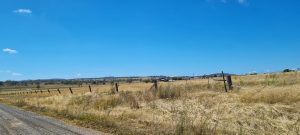Given how long it can take for a development plan to come to fruition from land purchase through to approvals there can be changes to a Planning Scheme that may adversely impact a site. Conversely there can also be changes that give significant uplift to the development potential of a site. For situations where a change has a negative consequence, the Queensland Planning Act has a mechanism that allows, in some instances, a development to be assessed under an old planning scheme.
Council planning schemes change infrequently but when changes do happen landowners can get caught out. For example, the development they had planned may no longer be permissible under the new scheme or some other parameters may have changed that impact the outcome sought.
To deal with this, the Planning Act 2016 has a built-in grace period of one year, during which you can request a proposed development be dealt with under the superseded version of the planning scheme. When you make a superseded planning scheme (SPS) request you can find out the council’s position before you go through with lodging a development application (DA) or carry out the development. The approval of a SPS request also gives the council a mechanism to avoid the payment of any compensation where yield has substantially been reduced.
The SPS request needs to be in writing to the relevant council and request they do either of the following:
apply a superseded planning scheme to carrying out the development that was previously accepted (as of right) development under the superseded planning scheme;
request that they assess the DA under a superseded planning scheme.
The decision by council relies on discretion and they can take into account any relevant matters, which in some cases includes whether compensation may be payable. If council refuses a SPS request, and a DA is submitted which subsequently approves comparable development to what was previously permitted, no compensation is payable.
Once your request has been made, the council must advise whether they agree or disagree with the request within 30 business days. Once they’ve made that decision they have a further 5 business days to notify the applicant. If council does not provide a decision notice then the council is taken to have agreed with it. If the council agrees to the request, and the development is assessable, you then have six months to get your DA submitted or commence development as applicable.
If planning changes impact the value of an owner’s interest in land, then there is also an opportunity to claim compensation. Under the Planning Act this is known as an “adverse planning change” is “a planning change that reduces the value of an interest in premises” and encompasses changes that limit the use of the premises to “the purpose for which the premises were lawfully being used when the change was made; or a public purpose.”
It is worth noting that compensation is not on the table when the changes are introduced to reflect another statutory instrument; there’s a change of infrastructure shown in the planning scheme; matters related to Local Government Infrastructure Plans (LGIP); the change is made to reduce hazards e.g. bushfire and flooding; or yield is not substantially impacted.
If you are indeed impacted by an adverse planning change of a public purpose nature you have 12 months to make an application under the superseded planning scheme as noted earlier in this blog. If you do not, you are unable to make a claim for compensation.
Affected owners may not be able to claim compensation from council if it is payable under another Act, has been paid to a previous owner of the interest, or anything has been done in contravention of the Planning Act.
Expert town planning advice in situations like this can help establish what rights you may have to apply for approval under a superseded planning scheme or seek compensation.
To find out more, get in touch via office@consultplanning.com.au or 1300 017 540.
Disclaimer: While every effort has been made to provide accurate information, Consult Planning does not guarantee that this blog article is free from errors or omissions or is suitable for your intended use. Requirements and standards frequently change so every individual proposal should be thoroughly investigated.








